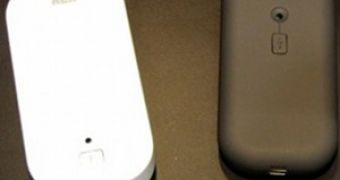In this day and age, end-users, if they know where to look, will be able to notice the phenomenon of moving away from cables. Wireless technology has advanced to the point where it can be implemented in mostly any situation, giving rise to wireless keyboards, mice, handsets, cameras and even more sophisticated products such as media players and hard drives. Unfortunately, all these products are eventually faced with the very same woe that has plagued cable-less products ever since their inception. This woe, known as failing battery power, has had, so far, only one solution, namely that which wireless products so desperately tried to let go of: cables.
In trying to remove, once and for all, the need for cables, perhaps even the worldly equivalent of the concept of cables, RCA has reportedly invented a new type of battery that can recharge wirelessly. As unlikely as it sounds, the AirPower batteries are capable of restoring their full power over time. Unfortunately, as it is always the case with promising products, there is a catch, specifically the batteries' need for a reasonably strong WiFi signal.
According to RCA, the AirPower batteries can pick up wireless WiFi signals and convert them into a current strong enough to restore their electric charge. This means that, on the bright side, full power could be restored without the need for a recharger or an alternate power source. On the less bright side, since the energy that can be drawn from WiFi signals is quite low, the rate of recharging will be proportionally slow. According to the report, RCA claims that, when not in use and in the presence of a strong signal, an AirPower will recharge completely in about six hours.
Obviously, the six-hour duration is significantly longer than it would take to recharge the battery via normal means. This is probably why RCA means to promote the AirPower as a backup power source to normal charging methods. On the other hand, the existence of the technology actually seems to suggest that wireless devices with seemingly inexhaustible power aren't just a dream anymore.

 14 DAY TRIAL //
14 DAY TRIAL //